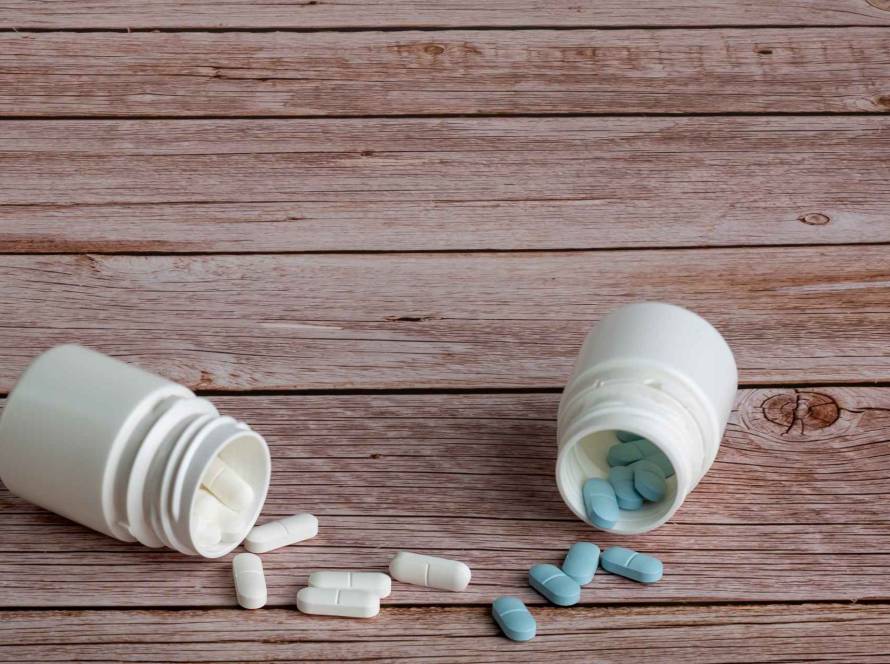Sleep problems affect 50-70 million adults in the United States. This makes many people wonder about what supplements are best taken at night. The biggest problem is insomnia. People with insomnia find it hard to fall asleep, stay asleep or get restful sleep. This leads to daytime tiredness, mood changes and poor performance.
In this piece, we’ll explore which supplements work better at night and the best vitamin supplements to take before bed. All these recommendations are based on solid scientific evidence.
Understanding nighttime recovery and sleep biology
Sleep means much more than just resting. Our bodies work through complex recovery and repair processes at night that can’t happen when we’re awake. This biological understanding explains why certain supplements are optimally taken at night to work best.
Why sleep is a critical time for repair
The restorative theory of sleep shows how our bodies repair and replenish cellular components needed for biological functions that run low during the day. Our body repairs muscles, organs and cells during deep sleep while blood carries chemicals that make the immune system stronger.
Sleep boosts glymphatic flow, which removes metabolites and potentially toxic compounds that build up in the brain during wake hours. This cleanup is vital to long-term brain health and cognitive function.
Our brain reorganizes and catalogs information learned during the day while we sleep. Picture a librarian sorting and shelving books, this makes everything we learn easier to access and use later.
How hormones and neurotransmitters change at night
Night brings dramatic changes to hormone levels. Darkness triggers melatonin production, known as the sleep hormone, telling our brain it’s time to rest. Our cortisol levels drop at the same time, reaching their lowest point in slow-wave sleep.
Growth hormone pulses increase during night-time sleep about every two hours. These surges peak during slow-wave sleep and help repair and build muscle. Not getting enough sleep stops these vital growth hormone pulses.
GABA neurotransmitters become more active as bedtime approaches. They stop cells involved in wakefulness from firing. Adenosine builds up in our blood all day, making us feel sleepy. Sleep-promoting neurons in our hypothalamus release GABA, which reduces activity of wake-promoting neurotransmitters like histamine, norepinephrine and serotonin.
The link between sleep quality and nutrient timing
When we eat can affect our sleep quality in several ways. People who eat later, especially evening meals, tend to score higher on PSQI tests, which means they sleep worse.
Meal timing gives important signals to biological clocks throughout our body and can affect sleep quality by regulating our central biological clock’s rhythm. Eating more fat within 3 hours of bedtime leads to more time spent awake, each extra gram of fat adds about 4.5 minutes of wakefulness during sleep, according to studies.
Hormones like insulin, leptin and ghrelin follow daily rhythms. They control digestive processes and can affect the brain’s hypothalamic region, which affects sleep quality. This complex relationship explains why what supplements are best taken at night depends in part on how they interact with these nighttime hormone patterns.
8 best supplements to take at night for sleep and recovery
The right nighttime supplements can revolutionize our sleep quality and recovery. Research backs these eight options as safe and effective choices.
Magnesium – calming the nervous system
Magnesium plays a vital role in sleep regulation. This mineral helps us fall asleep faster, sleep longer and feel less tired during the day. It affects brain chemicals like GABA, melatonin and cortisol. Magnesium glycinate works exceptionally well to promote relaxation.
Melatonin – resetting our internal clock
Our body naturally produces melatonin to regulate sleep cycles. Melatonin helps us fall asleep but doesn’t necessarily keep us asleep. Some people might experience nausea, dizziness or vivid dreams.
Glycine – improving sleep onset and depth
This amino acid helps us sleep by lowering body temperature and boosting serotonin levels. Research shows glycine helps people drift off faster and sleep better.
L-Theanine – reducing anxiety before bed
Tea leaves naturally contain L-theanine, which relaxes us without making us sleepy. It boosts calming brain chemicals like GABA, dopamine and serotonin. We can safely combine L-theanine with melatonin if needed.
Ashwagandha – lowering nighttime cortisol
Ashwagandha, often called “Indian Ginseng,” reduces stress hormones effectively. Studies reveal it can lower cortisol levels by 11-32.63% over 30-112 days. The name “somnifera” actually means “sleep inducer”.
Calcium – aiding neurotransmitter release
Calcium helps turn tryptophan into melatonin. Studies show it can reduce sleep difficulties. Research found that 500mg of calcium plus vitamin D improved overall sleep quality.
Collagen or protein – supporting muscle and skin repair
Glycine-rich collagen peptides improve sleep quality, especially if we exercise regularly. Athletic men in studies woke up less often with collagen, 21.3 times versus 29.3 with placebo. Their mental function improved the next morning too.
Probiotics – enhancing gut flora during rest
Our gut-brain connection affects how well we sleep. Studies show probiotics improved Pittsburgh Sleep Quality Index scores after 4-16 weeks. Certain strains like Lactobacillus acidophilus Rosell-52 and Bifidobacterium longum Rosell-175 work particularly well for better sleep.
How to choose the right supplement for our needs
Choosing the right nighttime supplements depends on our needs and health goals. We need to know exactly what we want to achieve. This helps narrow down our choices from all the options out there.
Sleep issues vs. recovery goals
Sleep problems might need different solutions than recovery needs. Melatonin helps us fall asleep faster. People focused on physical recovery might do better with collagen peptides or protein supplements that help repair muscles during sleep. Melatonin works great if we have jet lag or work night shifts because it helps fix our sleep cycle rather than making us sleepy.
Mental stress vs. physical fatigue
L-theanine can help us sleep better by reducing nighttime wake-ups if we’re dealing with mental stress. Our stress-related sleep problems might improve with Ashwagandha since it lowers cortisol levels. Magnesium supplements seem to work best for physical tiredness. Research shows older adults who can’t sleep might get better rest with magnesium.
Digestive health vs. hormonal balance
Our gut health and sleep quality are connected and probiotics can help strengthen this link. These good bacteria help keep our digestion running smoothly so it won’t mess with our sleep. Melatonin helps balance hormones as we age.
Age, gender and lifestyle considerations
Our age affects which supplement might work best. Older adults should stick to lower melatonin doses between 0.3-2mg. It is important to note that pregnant or nursing mothers should avoid most sleep supplements due to limited safety data. People with health conditions need to check with their doctors first since supplements can interact with medications.
Make sure to talk to a healthcare provider before starting any supplement, especially if we take medications or have health issues.
Nighttime supplements can substantially improve sleep quality and recovery if we use them wisely. Scientific evidence shows that supplements like magnesium, melatonin and L-theanine help people who struggle with sleep disturbances. In spite of that, these supplements deliver the best results when they match our specific needs rather than taking them randomly.
Quality sleep is the life-blood of longevity and wellness. While supplements help us sleep better, they work best as part of an all-encompassing approach that combines regular sleep schedules, good sleep habits and proper diet and exercise. This complete strategy makes better sleep more than just a nightly goal, it becomes our foundation for better health throughout life.
Read more about:


